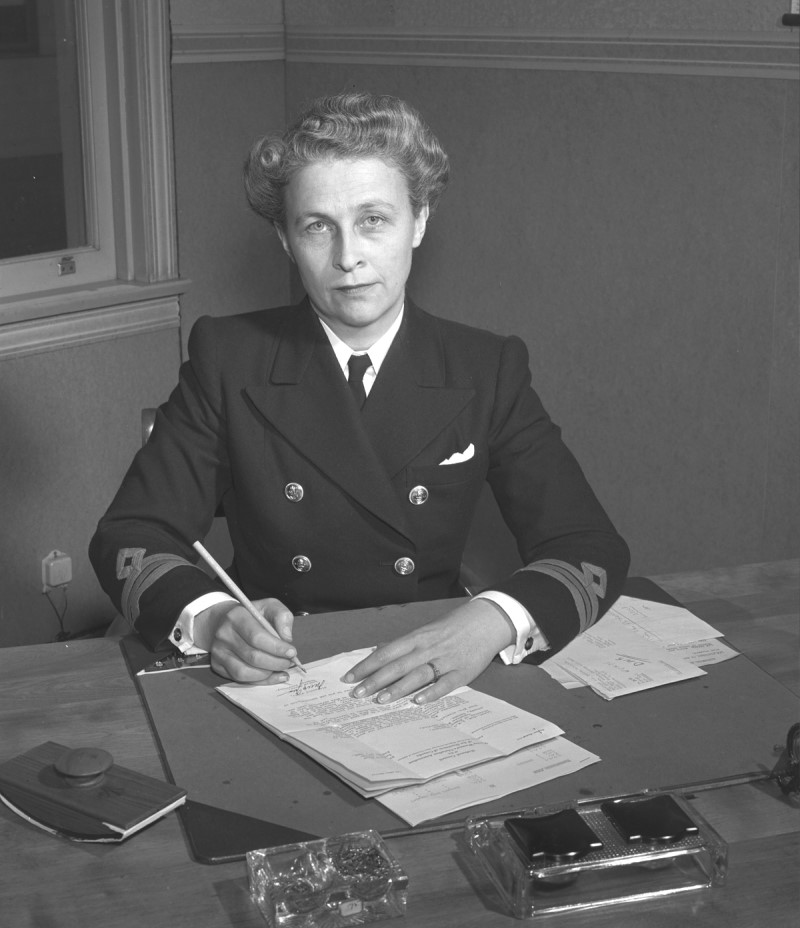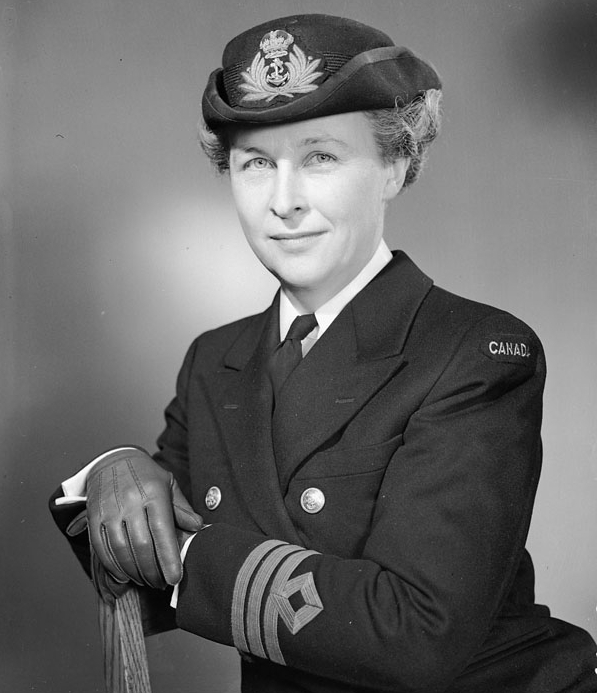Capt Adelaide Sinclair: Director of WRCNS dedicated her life to public service

Caption
Adelaide Sinclair was the first director of the Women’s Royal Canadian Naval Service.
From academia to exemplary war service, naval Captain (Capt) Adelaide Sinclair was a force to be reckoned with.
The first Canadian woman to hold the rank of naval captain, Capt Sinclair was appointed director of the Women’s Royal Canadian Naval Service (WRCNS) in 1943 (at the rank of commander).
It was a natural wartime progression for a woman who had dedicated her life to public service and wanted to play her part in making the world a better place.
Born in 1900, Capt Sinclair grew up in Toronto. Early on she defied the strict gendered expectations of women, proving to be a dedicated and intelligent leader. She earned a degree in political science from the University of Toronto in the early 1920s and went on to complete her Masters in Economics shortly after.
Upon graduation she moved to Europe to complete post-graduate work at the London School of Economics and University of Berlin. In 1929, she moved back to Toronto and married a lawyer, Donald Black Sinclair, who passed away in 1938.
Transitioning from academia to not-for-profit work, Capt Sinclair took up a position at the Central Volunteer Bureau and became Chairman of the Women’s Salvage Committee.
However, the outbreak of the Second World War dramatically impacted the work of both men and women. In some ways, it provided many women with an opportunity to step up and move into roles denied to them prior to the war.
Capt Sinclair leveraged this opportunity to help the war effort.
Almost immediately she joined the Wartime Prices and Trade Board in Ottawa. In March 1943, she joined the WRCNS, also known as the Canadian Wrens. By September, she was appointed director after spending four months in England studying methods used there by the English Wrens.
One of the women who worked with her, Ruth Markowitz, said Capt Sinclair was an exemplary leader who garnered the quick respect of the women under her command.
“Very few of us were close to Adelaide Sinclair, yet she was ours, our director, in whom we had a kind of fierce pride, and to whom we gave our affection and loyalty,” Mrs. Markowitz said. “It is our great fortune to have served under this great Canadian lady, who typified all the great qualities expected in a true Canadian naval officer.”
In a newspaper interview in 1944, Capt Sinclair explained the role of her Wrens. “We exist solely to replace men for duties at sea. Today, some 3,000 Canadian Wrens are relieving seamen for more arduous duties. Some are overseas, while 1,000 are in Halifax where they come in close contact with day-to-day naval actions.”
Women worked as administrators and map plotters, and also fulfilled vital duties with naval intelligence. Over the course of the war, more than 7,000 women served in the WRCNS.

Caption
A bust of Adelaide Sinclair created by RCN sculptor-in-residence Christian Corbet.
Capt Sinclair had firm ideas of how she wanted these Wrens to be trained leading up to their release after the war.
“We want them to leave the service with a full knowledge of world affairs and their responsibility as citizens.”
In 1945, Capt Sinclair received the Order of the British Empire for her “untiring zeal and outstanding ability, tact and judgement in organizing the WRCNS into a most efficient and well-disciplined unit.”
In 1946, she was promoted naval captain, a first for Canadian women.
After the war, Capt Sinclair continued to dedicate her talents to public service. She acted as executive assistant to the Deputy Minister of National Health and Welfare from 1946-1957. She also joined the newly established United Nations’ International Children’s Emergency Fund (UNICEF) as a Canadian delegate. She moved up the organization’s ladder quickly, becoming UNICEF’s deputy director for programs and holding the position for nearly a decade.
As a result of her dedicated service, she became one of the highest ranking and most powerful women at the United Nations at the time.
In 1967, Capt Sinclair received the Order of Canada for her “contributions to Canada as former director of the WRCNS and later as deputy director of UNICEF.”
One year later, she received an honorary Doctor of Law from the University of British Columbia.
A bust to commemorate her outstanding service to Canada, created by Royal Canadian Navy sculptor-in-residence Christian Corbet, was unveiled at the Naval Museum of Halifax in 2012 during the 70th anniversary of the establishment of the WRCNS.
Following Capt Sinclair’s death in 1982, Mrs. Markowitz said, “Seldom have we seen in Canada the degree and devotion shown by Adelaide Sinclair while carrying out assignments concerned with the betterment of life in Canada and other parts of the world.”
Sources
Adelaide Sinclair, 1900-1982, An Appreciation, by Ruth Markowitz
Page details
- Date modified: